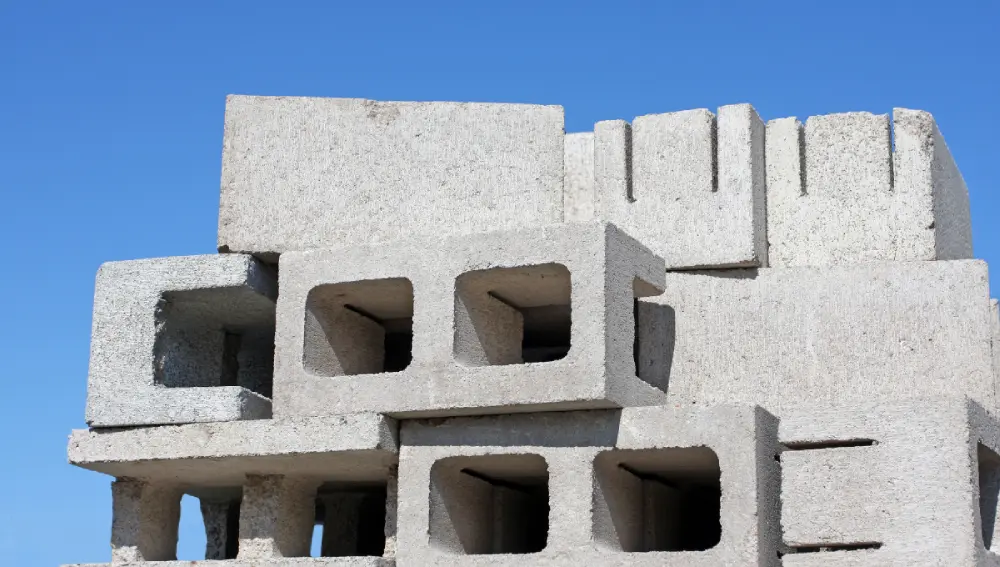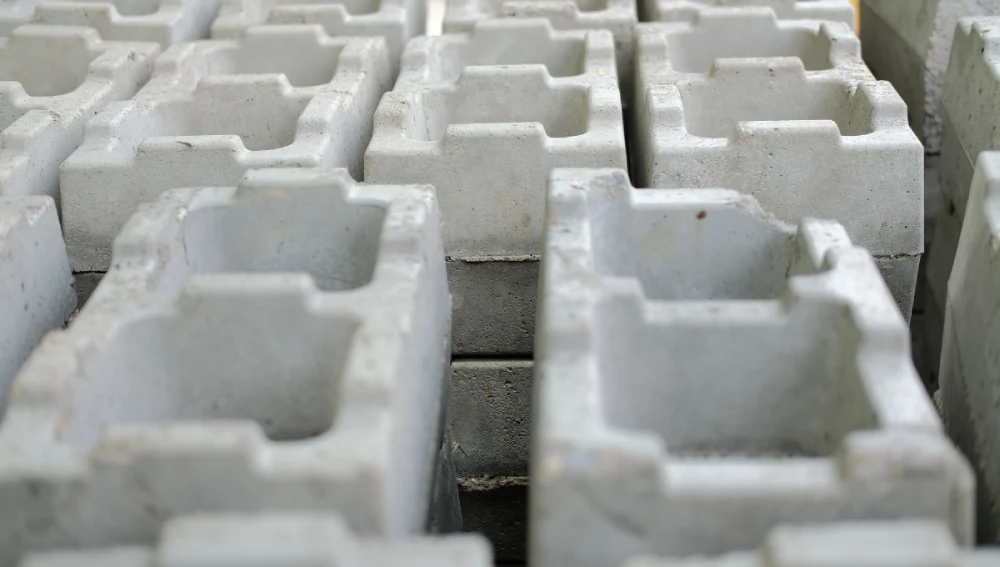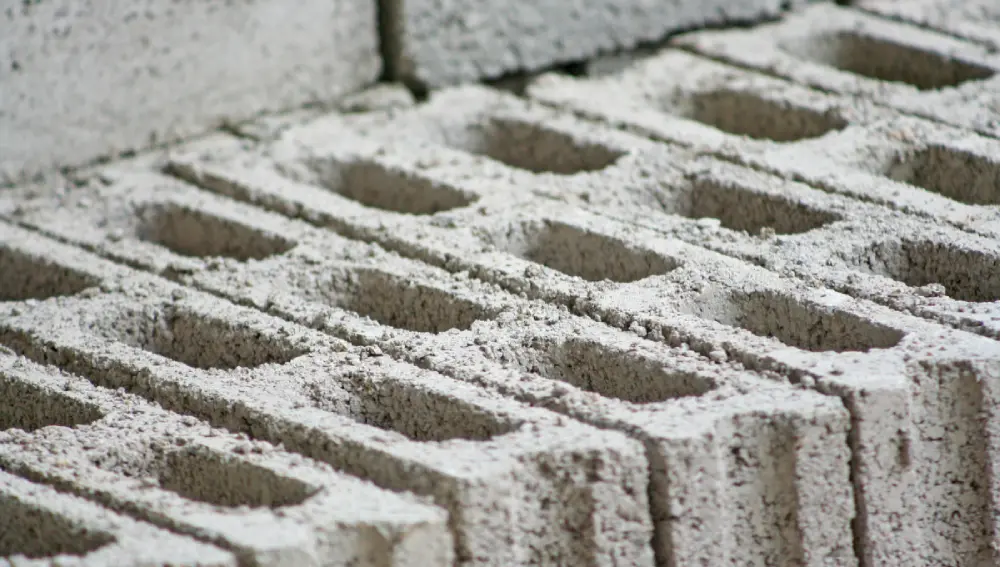Like food and air, shelter is one of the basic human requirements. In the mediaeval period, only mud houses were present, but modern technology has introduced several building materials.
Cement blocks are one such material that is a primary material in concrete. These blocks provide strength and support to the building. This blog takes care of all the details on the cement blocks that you need to know before starting to build your dream home.
What Is A Cement Block?
A cement block is a concrete material used as a building material. It is a general precast concrete choice for buildings. The cement blocks are made and hardened off-site at a factory. The blocks are then transported to the construction site. The cement blocks have plain or patterned designs. Some cement block designs have hollow shapes that are used as small windows.

Types Of Cement Blocks
Cement blocks are generally classified into two types based on the size, type of production, technique, and structure.
Hollow Blocks
A hollow block is also known as a breeze block or cinder block. Larger buildings use hollow blocks which are mostly used to make sure that at least half of the cross-sectional area appears hollow. This structure can hide cable wires or pipes seamlessly within the designs and gives a smooth finish.
The cement blocks comprise fine gravel, sand, and cement in high-density blocks. In low-density blocks, industrial fly ash or bottom ash are used as raw materials.
The Indian Standard-IS 2185, 2005, discusses that a hollow block that contains more than one hole has fifty to seventy percent of solid materials. These blocks reduce the cross-sectional area of the block. These blocks decrease the time of construction and save money on steam.
Sizes of Hollow Concrete Blocks
There are two sizes available in a concrete block—full-length and half-length, depending on the purpose.
- Block Length: 400, 500, or 600mm
- Block Height: 100 or 200 mm
- Block width: 50, 75, 100, 150, 200, 250, or 300 mm.
Hollow Concrete Block Grades
Grade A: The grade A blocks are utilised in high load-bearing units. They have a minimum density of 1500 kg/m3. On the 28th day, the compression strengths are on an average of 3.5, 4.5, 5.5, 7.0, 8.5, 10, 12.5, and 15 N/mm2.
Grade B: Similar to grade A, the grade B blocks are also used in load-bearing. They have a maximum density of 1000 kg/m3 and 1500 kg/m3. They have an average lower comprehensive strength of 3.5 and 5 N/mm2.
Grade C: The grade C blocks have lower density compared to the other two and are used in load-bearing units. The density is 1800 kg/m3. The average compression strength is 4 and 5 N/mm2.
The price of hollow concrete blocks is around 28 to 50 Indian rupees.
Solid Blocks
The solid blocks are heavy and are grey-coloured bricks. They are used in the construction of houses or for other small projects. They can be used for creating walls and can protect against strong winds.
Additionally, they can be used in other projects, namely planters, garden walls, steps, fire pits, and foundations. They are cheaper compared to hollow blocks.
Sizes of Solid Concrete Blocks
A solid concrete block does not come in a single size. Depending on the need, its sizes vary, and some of the common sizes are listed below:
- Block Length: 400 mm, 500 mm or 600 mm.
- Block Height: 100 mm or 200 mm.
- Block Width: 100 mm, 150 mm, 200 mm, or 250 mm.
Grades of Solid Concrete Blocks
The grades of a concrete block are present only for the hollow blocks. Solid blocks have no grade system. They are specifically designed for load-bearing and high-strength walls. However, some companies have their codes depending on the performance.
Advantages of cement blocks
The advantages of cement blocks are listed below:
Cost Effective:
Block masonry is a type of cement block that is way cheaper compared to other materials. Comparing it with other bricks, they are at least Rs. 1,500 less than a cubic metre. Compared to other materials, these cement blocks are 17.65% cheaper for building walls.
Eco Friendly:
If you are a nature lover, then cement blocks will best suit your construction needs. The by-product of thermal power plant fly ash is the key ingredient in making the blocks.
Sound Proof:
These blocks are denser than bricks. Buildings near noise pollution areas can benefit from using cement blocks rather than red bricks.
Strength:
The cement blocks can withstand tornadoes and natural disasters. They have a long lifespan and are sturdy.

Disadvantages of cement blocks
The major disadvantages of cement blocks are listed below:
- The construction of an entire residence or building using a cement block will cost a fortune.
- Some blocks require cutting to be fixed in the desired place.
- Cement blocks may not look appealing when looked at from the outside.
- In comparison to conventional bricks, these cement blocks have a low strength-to-weight ratio.
Conclusion
In conclusion, cement blocks are conventional and cheaper options to consider for foundation, gardening, and building small residences. They are the best alternative for conventional bricks on the market. They consume less construction time and are available in different sizes.
FAQs
Each type of brick and Cement block has its own individual property. When comparing tensile strength, concrete blocks are favoured. However, red bricks can last without water seeping. Hence, it depends on the purpose and person it is intended to.
When comparing the strength, cement is stronger compared to brick due to its high tensile strength.
The cement blocks have pores in them and absorb water from the nearby areas as well. They are not advised to use in areas that experience high rainfall.

